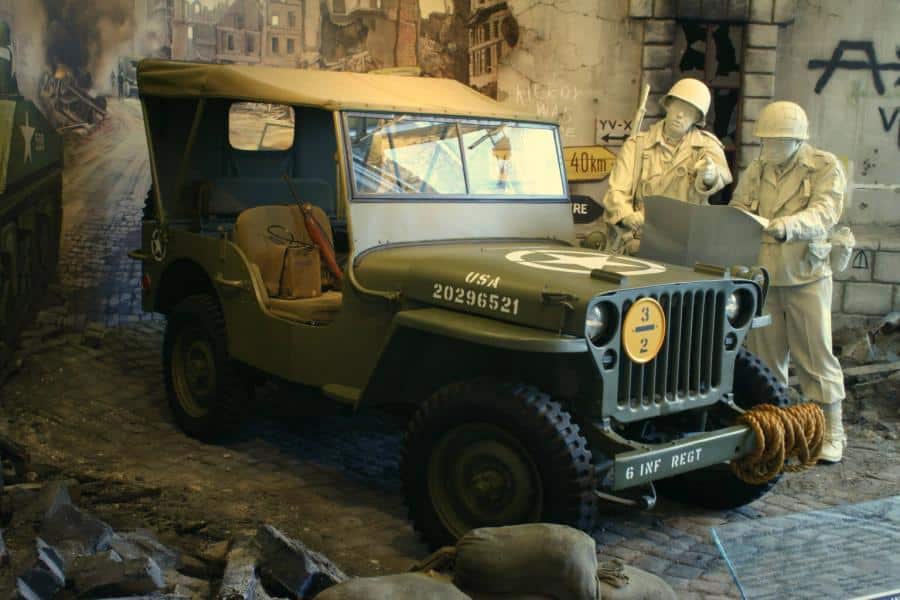The Willys MB and the Ford GPW, both formally called the U.S. Army Truck, 4×4 Command Reconnaissance, commonly known as “the jeep”, were highly successful off-road capable, light, military utility vehicles, built in large numbers to a standardised design, from 1941 to 1945, for the Allied forces during World War II. It became the primary light wheeled transport vehicle of the United States military and its Allies in WWII, as well as the post-war period, with author Charles K. Hyde stating, “in many respects, the jeep became the iconic vehicle of World War II, with an almost mythological reputation for toughness, durability, and versatility.”
It was also the world’s first mass-produced four-wheel drive car, manufactured in six-figure numbers. In fact, about 650,000 units were built, constituting a quarter of the total U.S. non-combat motor vehicles produced during the war and almost two-thirds of the 988,000 light vehicle class produced, together with the Dodge WC series.
Large numbers of jeeps were also provided to the U.S.’ allies during the war, including Russia at the time, with over 50,000 jeeps being provided to them alone, more than Nazi Germany’s combined total production of their Volkswagen vehicles, the Kübelwagen and the Schwimmwagen.
Not only did it become the workhorse of the American military, as it replaced the use of horses and other draft animals (still heavily used in World War I) in every role, from cavalry units to supply trains, but improvised field modifications also made the jeep capable of just about any other function its soldiers could think of.
The jeep was considered such a valuable vehicle that General Eisenhower wrote that most senior officers regarded it as one of the five most important pieces of equipment used to win the war with General George Marshall calling the squared-off little car “America’s greatest contribution to modern warfare.”
After WWII, the original jeep continued to serve, in the Korean War and other conflicts, until it was updated in the form of the M38 Willys MC and M38A1 Willys MD (in 1949 and 1952 respectively), and received a complete redesign by Ford in the form of the 1960-introduced M151 jeep.
Its influence, however, was much greater than that—manufacturers around the world began building jeeps and similar designs, either under license or not—at first primarily for military purposes, but later also for the civilian market. Willys trademarked the “Jeep” name, turned the MB into the civilian Jeep CJ models, and Jeep became its own brand. The 1945 Willys Jeep was the world’s first mass-produced civilian four-wheel drive car.
Thereafter, the success of the jeep inspired both an entire category of recreational 4WDs and SUVs, making “four-wheel drive” a household term, and numerous incarnations of military light utility vehicles.
In 1991, the MB Jeep was designated an “International Historic Mechanical Engineering Landmark” by the American Society of Mechanical Engineers and later in 2010, the American Enterprise Institute called the jeep “one of the most influential designs in automotive history”.
Its “sardine tin on wheels”, silhouette and slotted grille are perhaps even more instantly recognisable than the VW Beetle and it has over time now evolved into the currently produced Jeep Wrangler long after the demise of the original Volkswagen design.
